Search Results
Showing results 1 to 20 of 741
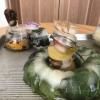
Frozen Sculptures
Source Institutions
In this activity, learners use objects they find on a nature and water to make creative frozen sculptures.

Spin Art
Source Institutions
Make your own spin art device using an old record player! Notice patterns and effects the spinning movement has on your work. When finished, post your work to the Spin Art Gallery!

Bonseki Salt Art
Source Institutions
In this activity learners will be creating art using a traditional Japanese art style.

Earth Art
Source Institutions
In this activity, young learners will model land and water on the Earth's surface to make a unique piece of "Earth Art." Activity includes materials list, step-by-step instructions, STEM connections a
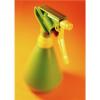
Wet Art
Source Institutions
In this activity (located on page 10 of the PDF), learners explore the properties of spraying and dripping water, while making art.
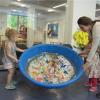
Rolling Action Art
Source Institutions
In this activity, learners of all ages will roll a ball coated with paint to artistically visualize the motion of the object.
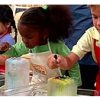
Art with Salt and Ice
Source Institutions
This open-ended art project allows learners to create their own colorful ice sculpture by using rock salt and food coloring on a solid block of ice.
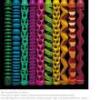
Words in Motion, Motion in Words
Source Institutions
In this art activity (page seven of the pdf), learners will use their creativity to make a "motion collage." Each student will be encouraged to draw a picture of something that moves to be a part of t
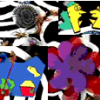
Kinetic Sculpture: Program the Pico Cricket to Make Your Art Light Up or Spin
Source Institutions
Use a Pico Cricket (micro-controller) to animate your art! You can program a Pico Cricket to make your art spin, light up, or make music.

Rhythm Painting
Source Institutions
In this activity, early learners create paintings by making music and rhythm. Learners place paper in cans, add paint-soaked beans (or pebbles) and put the tops on.
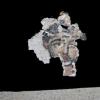
Making Mosaics
Source Institutions
In this archaeology meets art activity, learners make a mosaic and consider the ways in which art communicates.

Crystal Stencil Stars
Source Institutions
In this activity on page 6 of the PDF, learners dissolve Epsom salt in water and discover that the resulting solution can be used to create a work of art.

Shaving Cream Marbling
Source Institutions
In this activity, learners will create beautiful greeting cards by marbling with shaving cream and food dye. They will explore the chemistry behind the art of marbling.
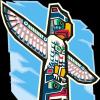
Make a Totem Pole
Source Institutions
In this activity (on page 2 of PDF), learners make their own totem poles out of recycled materials.
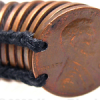
Penny Rubbing
Source Institutions
In this art-related activity, learners make a coin rubbing—a process similar to what archeologists may do with ancient artifacts. This activity can be used in connection with a history or art lesson.
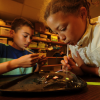
Soap Bubble Art
Source Institutions
Capture soap bubble patterns on paper! In this activity, learners can create beautiful pictures from popping soap bubbles.
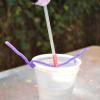
Floating Head Cup
Source Institutions
In this activity, learners watch a figure "magically" float up through the air.
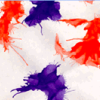
Painting a Picture with Air
Source Institutions
Create a painting by blowing air out of a straw. Push liquid acrylic paint around on some watercolor paper by aiming short bursts of air onto the paint puddle.
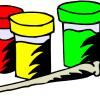
Salt Painting
Source Institutions
In this art meets chemistry activity, early learners discover the almost magical absorbent properties of salt while creating ethereal watercolor paintings.
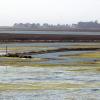
Wetland Preservation Art
Source Institutions
In this hands-on art and science activity (page 4 of the pdf), learners brainstorm and discuss how humans use wetlands, then express their understanding of the subject in artwork.
